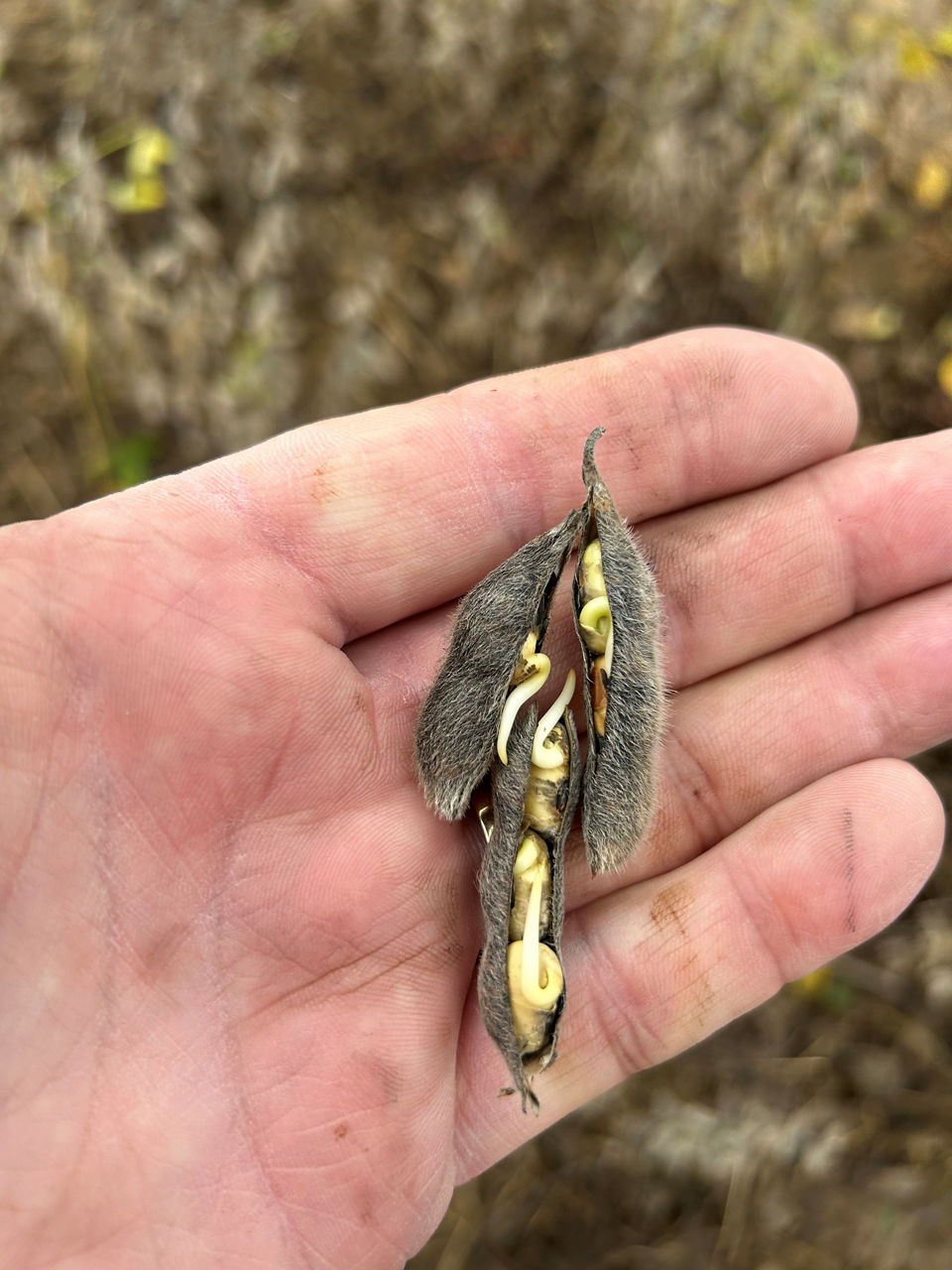Seed Sprouting in Soybean Pods
October 1, 2024
KEY POINTS
- Soybean seed that has not reached physiological maturity possess internal mechanisms that prevent germination.
- Mature soybean seed in pods may germinate if temperatures are greater than 50 °F and seed moisture concentration is above 50%.
Soybean seed possesses several mechanisms that prevent germination before physiological maturity. The primary mechanism is a balance between two hormones; gibberellic acid, which promotes germination, and abscisic acid, which inhibits germination.1 The level of abscisic acid peaks during seed filling and decreases as seeds near maturity, allowing germination under certain conditions. Generally, temperatures need to be greater than 50 °F and seed moisture concentration above 50% for mature soybean seed to germinate.
Frequent rains, continuous drizzle, and heavy fogs soak pods to the point at which water soaks through the pod wall and seeds begin to swell. With the moisture, pods do not expand much and may be large enough to stay intact and split only after the seeds have germinated.2 Swollen, unsprouted seeds can cause pods to open, allowing even more moisture to reach them directly (Figure 1). Pod opening can be exacerbated by drought stress, which can result in small pods that are easier for swelling seeds to outgrow and split. Once seed moisture increases over 50%, germination begins and continues as long as conditions stay wet. Soybean seed sprouting can be more frequent if dry conditions prevailed during pod and seed development (R4 to R6) growth stages.
Elongation of the embryo root is the first visible indication germination has begun. Sprouted seeds may be more noticeable in dark colored pods at the top of the plant. In plants without dark pods, sprouted seeds may be more common in the lower canopy.

Premature seed sprouting may impact grain quality due to the following factors:
- Germinated seeds die and small seedlings may break into several parts.
- Free sugars, amino acids, and fatty acids are released during germination, and these compounds spoil easily in storage.
- Seed coats rupture during germination, resulting in seeds with increased vulnerability to insects and fungi while in storage.
- Grain storage time, grain quality, and official grade may be reduced.
The amount of sprouted soybean at harvest is usually low and its seed quality effects are typically minimal. Drier conditions are expected to cause sprouted seed to dry up and possibly fall out of pods before combining. Lower test weight or an increased level of foreign material (dried sprout pieces) are possible when loads are graded. In severe cases, light sprouted seed could be blown out the back of the combine with air adjustments.
Sources
1Wiebold, W.J. 2014. Seed germination before harvest. University of Missouri. https://ipm.missouri.edu/cropPest/2014/10/Seed-Germination-Before-Harvest/
2Holshouser, D. 2015. Wet conditions may lead to soybean seed sprouting. Virginia Cooperative Extension, Virginia Ag Pest and Crop Advisory. https://blogs.ext.vt.edu/ag-pest-advisory/wet-conditions-may-lead-to-soybean-seed-sprouting/
Additional resources
2017. U.S. Standard Federal Grain Inspection Service. USDA, Federal Grain Inspection Service. https://www.ams.usda.gov/about-ams/programs-offices/federal-grain-inspection-service
Web sources verified 10/01/24. 1314_460601
Disclaimer
Always read and follow pesticide label directions, insect resistance management requirements (where applicable), and grain marketing and all other stewardship practices.